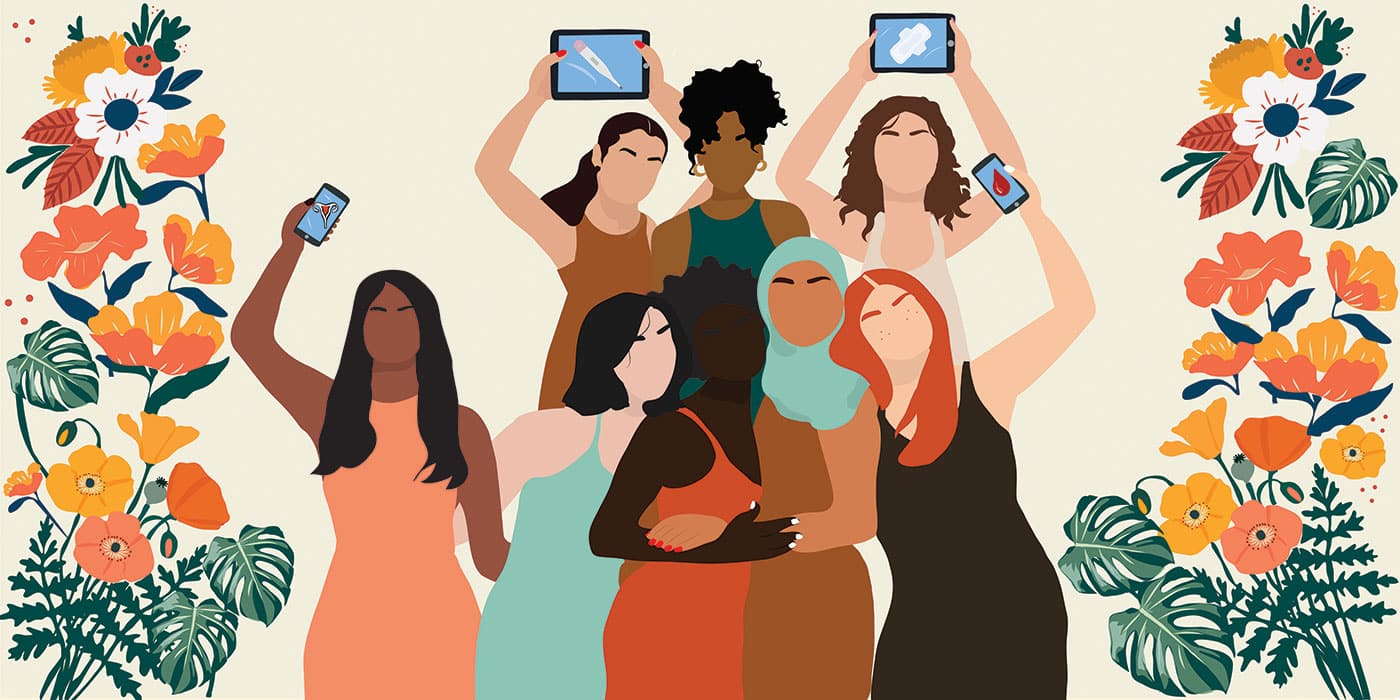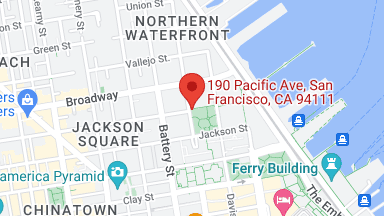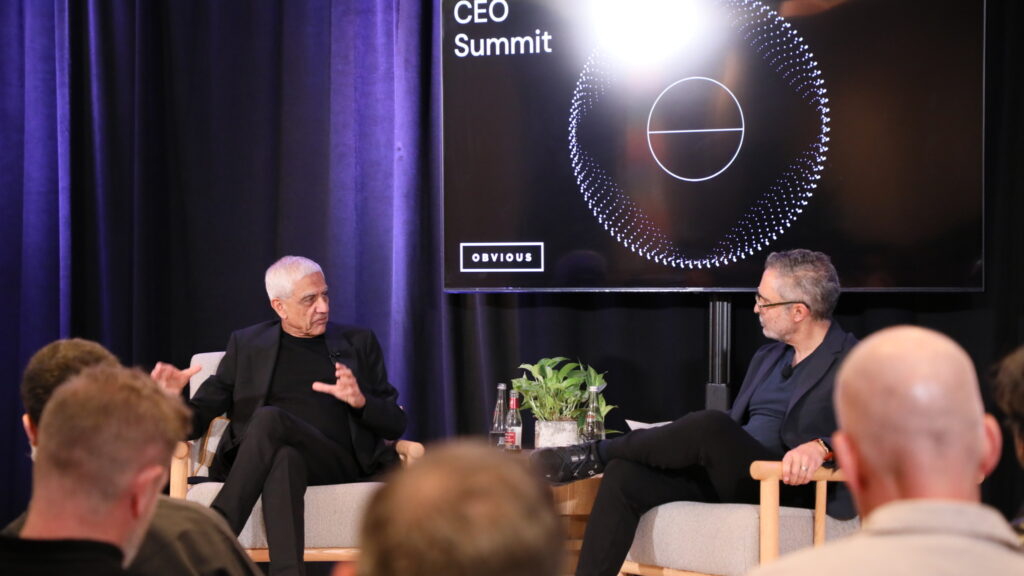The Future of FemTech Is Here
From innovations in contraception to hormone hacking
Obvious |

Over the years, I’ve watched the women I love most struggle with a myriad of health issues that are unique to women including fibroids, endometriosis, preeclampsia, abortion, menopause, and fertility issues. I’ve also seen them wrestle with challenges impacting all genders but that women experience more often, like hyperthyroidism, anxiety and depression, Alzheimers, cancer, and high blood pressure.
While these are not uncommon, some of these health issues I did not know about beyond what my loved ones shared with me. This lack of knowledge and a desire to help support the ones that I love fueled my research of women’s health during my summer internship at Obvious. While I use the term women throughout this article, I am referring to all people who experience women’s health issues.
Amid my research, I saw women’s rights to bodily autonomy stripped away in the wake of the reversal of Roe v. Wade. This motivated me to learn more about women’s health generally, and more specifically the entrepreneurs building products and services to address our unmet needs.
Women currently make up slightly more than half of the U.S. population (there are 167.5 million of us), yet women’s health has historically been underfunded, underrepresented, and misunderstood. It wasn’t until 1993 that Congress passed a law requiring that women and minorities be included in clinical trials. This means that the opportunities for innovation remain vast and unrealized.
At Obvious Ventures, we invest in world positive entrepreneurs building disruptive solutions to humanity’s biggest problems. FemTech — products and services that use technology to address health conditions exclusive to or prevalent in women, a traditionally underserved population — fits squarely in this space. This includes fertility, pregnancy/motherhood, sexual/gynecological health, perimenopause/menopause, chronic disease, and mental health. This past summer I worked on a marketing project with one of Obvious’ portfolio companies Womaness, a brand designed to support women in perimenopause and menopause.
Over 600+ FemTech companies have been created to address issues in women’s health in an industry that is estimated to be worth $1 trillion by 2027. Solutions to address these challenges present a huge opportunity, and below are three areas where I see outsized potential.
Culturally Competent Care
The U.S. has the highest rate of pregnancy-related deaths of developed nations. Many of these deaths are preventable with proper prenatal care. There is also a vast racial disparity within this statistic. According to the CDC, Black women die during pregnancy at 3x times the rate of white mothers. One of the world’s most famous athletes, Serena Williams, almost died after giving birth to her daughter in 2017. This year, while giving birth to a baby boy, my cousin suffered from preeclampsia, a serious blood pressure condition that can develop during pregnancy. Thankfully, these women spoke up and made sure that they got the care that they deserved. Their stories and stories like them underscore the Black maternity mortality crisis in the U.S.
Companies like Poppy Seed Health are caring for women who experience loss and need support through pregnancy and postpartum by offering 24/7 access to a doula, midwife, or nurse, while also supporting women on Medicaid. Another care model I love is Cayaba Care, which provides members with a medical navigator to help coordinate care and provide resources and emotional support. Cayaba Care is free for members, as they are paid by insurance providers and health system partners, ensuring equitable access to care.
Beyond pregnancy and motherhood, women face challenges in healthcare across the spectrum. A recent New York Times article detailed some of the ways that women, particularly women of color, are gaslighted in the doctor’s office, which can often lead to misdiagnosis and delayed treatment options.
Companies like Kiira are helping women access a full suite of care, including mental health, with an emphasis on cultural sensitivity. Health In Her Hue is helping women to find access to healthcare providers in their area that look like them. And Loom is providing evidence-based sexual and reproductive health education for women and those that identify as nonbinary.
Companies with inclusion at the center of their practice will continue to thrive, while closing gaps in access to care for marginalized communities. These identity aligned interventions improve outcomes and lower healthcare costs.
Contraception Development & Delivery
The CDC estimates that 65% of women ages 15–49 use contraception. Given the recent Supreme Court decision on abortion rights, contraception, access to medication, and care will be even more important.
The rise of telehealth has made it easier for women to access appointments to fill their prescriptions and have them delivered to their doorstep. Companies like Nurx offer easy-to-access care and contraception medication, in addition to STI testing and treatments, skincare, and mental health medications. Twentyeight Health also offers access to over 100+ types of birth control, Covid-19 tests, and prenatal vitamins, with an emphasis on access and affordability as they accept insurance and Medicaid. They also donate 2% of all revenue to nonprofits improving access to reproductive and sexual health care. Companies like Adyn are helping women understand what types of contraception work best for their bodies by offering a testing kit that analyzes genetics and hormones to help women determine their best birth control options.
While most non-barrier birth control methods require a prescription in the U.S., there is a growing movement to increase access by offering it over the counter. Many countries in Latin America and Europe offer birth control this way. Earlier this year, HRA Pharma filed to seek approval from the U.S. Food and Drug Administration (FDA) for Opill, an over-the-counter birth control pill. Cadence Health is also following the steps outlined by the FDA for their pill Zena to be approved for over-the-counter use in the near future.
As contraception becomes more convenient for women, companies are also researching and developing new methods including non-hormonal options for women looking to reduce potential side effects. Cirqle by OUI uses mucus engineering to develop a gel capsule that can be used one time as a form of birth control. In 2020, the FDA approved the use of Phexxi as a non-hormonal form of birth control that works by altering a woman’s pH balance.
With misconceptions around contraception and abortion laws shifting in each state, women are seeking safe access to abortion medication and emergency contraception. Both Hey Jane and Choix offer abortion pills via telehealth in states where abortion is legal.
Areas like increasing access to contraception, understanding and managing its effects on the body, and the development of new forms of contraception remain open for innovation with more opportunities on the horizon for entrepreneurs
Hacking Hormonal Health
I’ve been on hormonal birth control for the last decade, and if I go a few days without taking my pill, I immediately feel the effects. My face breaks out, my head hurts, and my emotions take me on a rollercoaster. Beyond hormonal birth control, women’s hormonal health heavily influences chronic conditions and diseases including endometriosis, thyroid disease, and polycystic ovary syndrome (PCOS). According to the Office on Women’s Health, one in ten women suffer from a hormonal condition.
Addressing the root causes of these hormone imbalances can help women better manage their overall health. As this space continues to grow, more work needs to be done to educate women about their hormones as it can be easy to look at symptoms in isolation. To help women understand their hormone levels, companies are offering home health kits, telehealth, and care plans.
Mira is an FDA-approved comprehensive AI-powered women’s health home monitoring platform that currently focuses on hormones relating to fertility. Noula is a personalized health information platform that includes an at-home test for hormones and micronutrients and creates an actionable care plan in partnership with healthcare professionals. Eli Health is developing a saliva-based hormone test that can be used at-home with a machine that reads results in a few minutes. Even larger companies, like at-home health testing company Everlywell, offer different types of hormonal tests, including for fertility and menopause.
While these test results should be discussed with a licensed medical professional, they offer a glimpse into a woman’s hormonal health and can help with fertility, addressing chronic disease, or understanding menopause. The opportunity landscape here is growing every day.
There is no time like the present to invest more in women’s health. I am particularly interested in solutions founded by women for women, considering female founders received a dismal 2% of VC funding in 2021. If you’re building solutions in support of women’s health, we’d love to hear from you. Please reach out to Kahini Shah: kahini@obviousventures.com.



